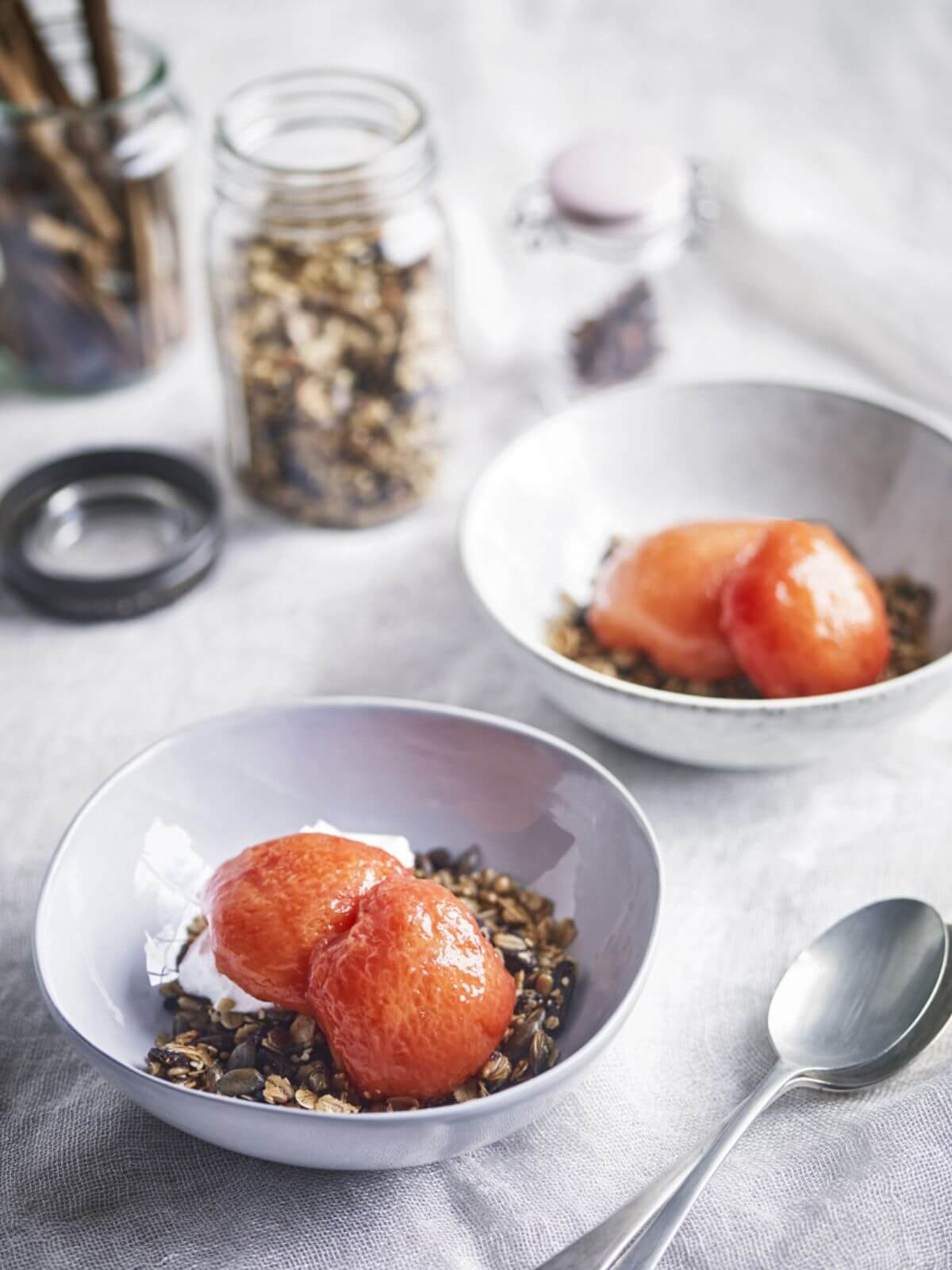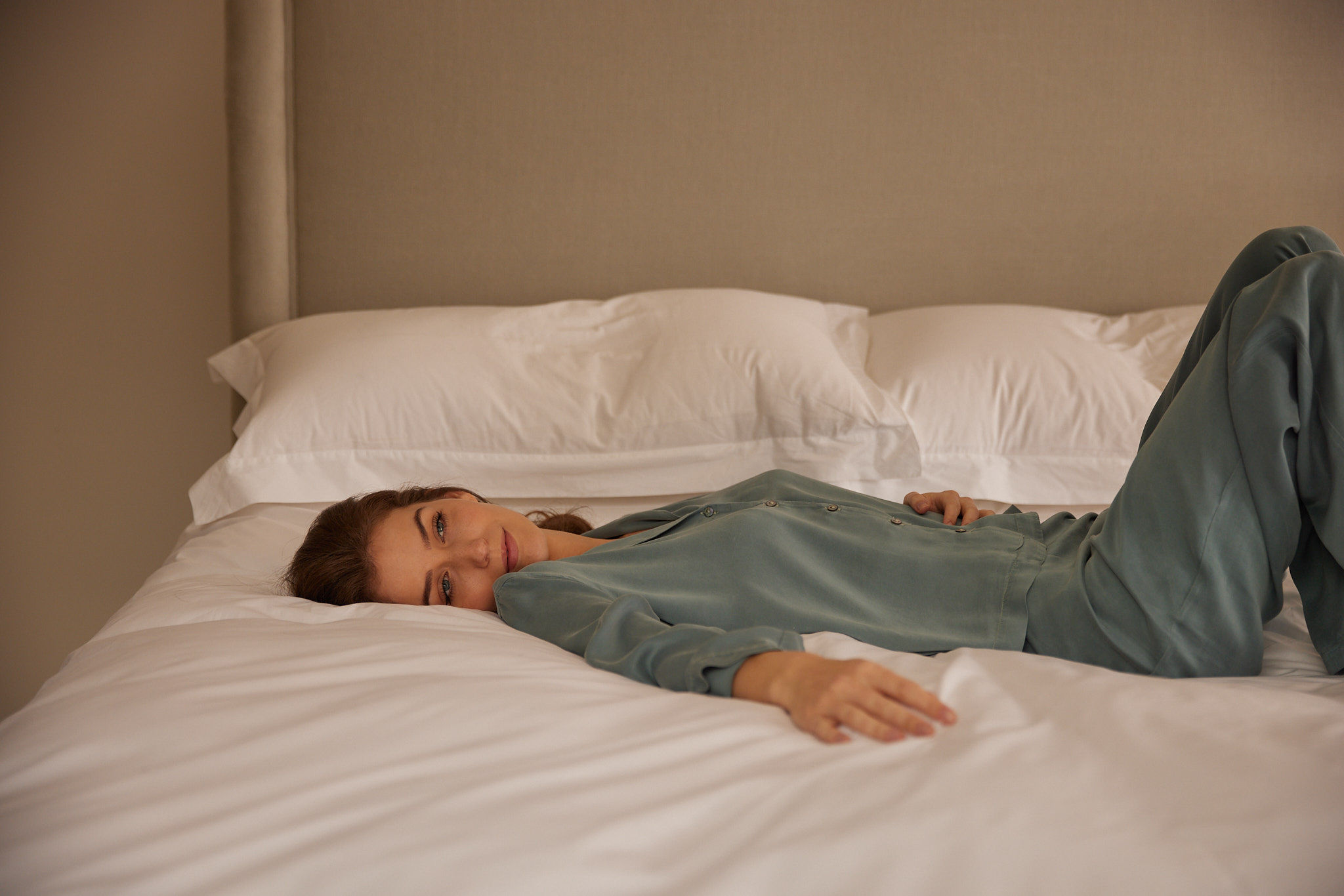Understanding the link between gut health and sleep with nutritional therapist Sarah Williamson
Thanks to new findings in science and increased accessibility to research, our understanding of our overall health and its link to sleep has taken on a more holistic approach. This has led us to a conversation with nutritional therapist and WomenWise founder, Sarah Williamson, about the link between gut health and sleep.

Although the saying “you are what you eat” comes with a range of negative connotations, now’s perhaps the time we revaluate its meaning. Much of the recent research understanding our mental and physical wellbeing is drawing back to our gut and most importantly, the food we eat.
As an organ responsible for the production of one of our most crucial hormones – serotonin, a healthy gut has the ability to improve our lives tremendously. Known as the ‘feel-good’ chemical, it regulates our mood, allowing us to feel calmer and more relaxed. Furthermore, it’s also responsible for moving food through our digestive system, helping our bodies to rid of toxins. And perhaps most interestingly, the quality of our sleep is imminently linked to our body’s ability to produce serotonin.
A healthy gut and microbiome are key pillars of health. It’s important for the digestive system, but also our nervous system, immune system, and mental health.


As we dive further into our conversation with Sarah Williamson, the correlation between our physical and mental health, ability to sleep and gut becomes more prominent. “There is a biochemical connection between our gut and our brain. Bacteria in the gut produce serotonin, which acts as a messenger in our nervous system. It is thought that 90% of serotonin in our body is made in the gut”, she explains.
Many who struggle with falling or staying asleep may be prescribed melatonin to assist in getting the rest they need. While this may provide some temporary relief, if our gut health is the reason for the lack of its production, we may see very little results from trying to reintroduce it without addressing the issue at hand – our diet. “Tryptophan-rich foods form the foundation blocks of serotonin and melatonin. Foods rich in tryptophan are turkey meat, chicken, eggs, wild-caught fish, beans, and Tofu. We also need foods rich in the B vitamins such as leafy greens, egg yolks and liver. Fermented foods and foods rich in fibre can help the gut bacteria produce B vitamins. If you follow a plant-based diet, you should supplement vitamin B12 as it is not available in adequate amounts in plant foods”, she advises.

While there are many signs of poor gut health, inability to sleep, irritable bowel syndrome symptoms and low mood are the key tell-tale signs that you may need to consult a specialist. Another key factor in good sleep quality is stress. The effects of it can have detrimental consequences on our health, both physical and mental. It’s important we take time to address our stress levels throughout the day and take adequate time to exercise, spend time in daylight and practice mindful routines.
“Stress can play havoc with our digestive health, so as well as watching what you eat, managing stress is important. Meditation and breathwork are brilliant techniques for rapidly reducing your stress response. Try a guided meditation before bed to relax”, Sarah adds.
A technique recommended by breathwork specialist Jamie Clements is the 4-7-8 method. As an all-natural way to calm our breathing and bodies, breathwork can very easily be adapted to busy lives. And because of its immediate effect on our mood and stress levels, you won’t find yourself short of motivation to continue this practice.
Inhale through the nose for 4 seconds, hold the breath for 7 seconds and blow the exhale out of the mouth for 8 seconds. Repeat for as long as necessary.
Our continued drive to unearth the true ingredients of a restorative night’s rest is what inspires conversations with some of the most esteemed individuals within the wellness industry. Sarah Williamson is a nutritional therapist with over 20 years of experience. As the founder of WomenWise, an organisation focused on helping provide women with the right support and guidance through menopause, she champions personalised health advice and individual approach.



